Do you keep saying “I have no friends”? For most people developing friendships come naturally, while for others making even one new friend can seem like the greatest challenge. If you feel lonely and find it hard to make or keep a friend, then this guide is exactly for you.
Why You Have No Friends
What do you exactly mean when you say “I have no friends”? We all have friends. Whether you can count on them in your hour of need or not, that’s a different question.
But we all have acquaintances we interact with on a daily basis. However, when we lack meaningful and authentic connections with others, it can lead to serious loneliness. So when you say “I have no friends”, you mean you lack genuine emotional connection with your peers.
The actual question you should be asking is not “why do I have no friends?” but “why don’t I have any real, close friends?” Even though you may frequently or occasionally hang out with a group of people you know, you have no one you can personally spend quality time with.
Although you may have fun and go out with your so-called “friends”, you can never truly share anything personal with them. So the reality of not having a real friend is complicated and you need to evaluate your situation clearly before coming to any conclusion. If there is someone you can talk to but you hesitate to open up, then try to connect with them more on a one-on-one basis.
Related: 11 Things That Are True Only For Genuine Friendships
The thing about friendship is it takes effort to build and maintain. However, if you seriously have no friends you can feel emotionally connected with, then here are a few probable and underlying reasons why you have no friends –
1. Shyness
Being shy can often be an obstacle in meeting new people and building connections. When you’re shy it can be difficult for you to introduce yourself to others or start conversations with strangers. Moreover, being in a group of people you barely know can make you feel uncomfortable and plan your exit ASAP.
Studies have shown that shy individuals have problems with social interactions. Research also indicates that shyness is associated with a preference for solitude and depression due to a lack of “friend support.”
One study has even found that shyness is related to a negative self-bias, self-derogatory thinking and public self-consciousness leading to anxiousness and inhibition. No wonder shy people have difficulty connecting with others and keep saying “I have no friends”.
2. Anxiety
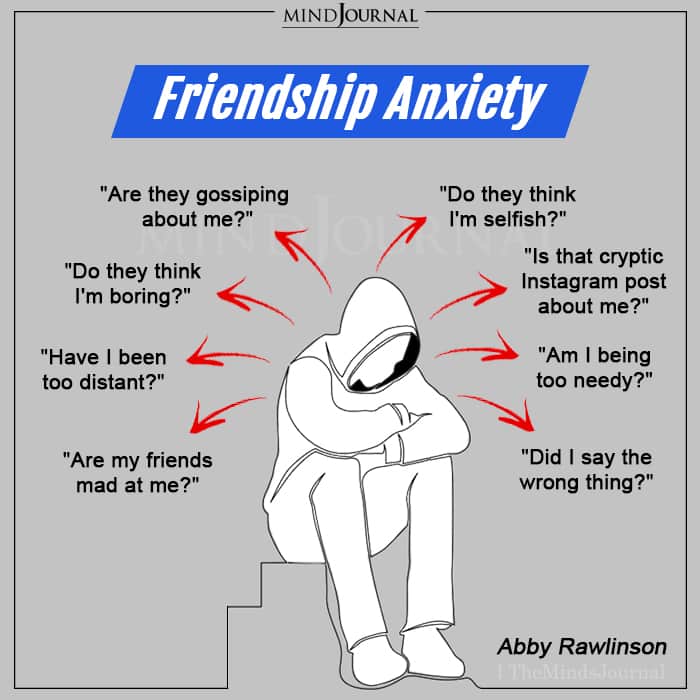
To be precise, social anxiety. It is the fear of anxiety of being in social situations where you may or may not be judged by others. “People with social anxiety disorder fear that they will say or do (involuntarily or otherwise) something that they think will be humiliating or embarrassing (such as blushing, sweating, shaking, looking anxious, or appearing boring, stupid or incompetent),” explain researchers.
As a result, they try to avoid situations that may trigger their anxiety. Unfortunately, this can prevent you from meeting new people, interacting with individuals you find interesting and building friendships.
Most of us experience some degree of anxiety while interacting with new people as we are all afraid of being judged or rejected. However, when we allow our anxiety to control our thoughts and emotions, it can stop us from making friends.
3. Introversion
Although this may be related to shyness, introversion is a personality type, whereas shyness is a tendency or a trait. Introverts typically do not enjoy meaningless social interactions, prefer solitude and feel overstimulated easily in social settings.
As a result, they prefer to be alone or have one on one interactions. However, it can be really difficult for them to build meaningful relationships as they often take time to open up. so if you find yourself saying “I have no friends”, the introversion may be a good reason.
Research has found introverts are seemingly uninterested in unproductive social interaction, but they also experience “higher positive affect following social situations compared to non-social situations.”
According to a 2009 study, two introverted friends may delay talking about their feelings. However, one 2020 study found that “introverts with high social engagement have higher self-esteem than introverts with low social engagement.”
Related: 5 Ways To Connect With Anyone As An Introvert
4. Mental health issues
Mental health disorders can strongly influence peer relationships. When someone is suffering from certain mental health disorders, they can also face difficulty making or keeping friends. People with agoraphobia, social phobia, panic attacks, depression, bipolar disorder, schizophrenia, autism spectrum disorder (ASD) and other conditions often face serious challenges in socializing.
Depression is closely linked with loneliness, while Asperger’s Syndrome can make it difficult for the sufferer to understand social cues. A person with bipolar disorder may frequently experience manic and depressive periods which can hurt their friendships and relationships.
Not only do sufferers have to face their personal issues, they also have to cope with the inaccurate judgments and assumptions other people make about them. On the other hand, lack of social connections, isolation and loneliness can lead to psychological issues in certain people.
Studies have found that “social support is an important factor that can affect mental health.” If you think you are suffering from some mental disorder, make sure to consult a qualified medical professional. So if you have any underlying psychological condition, then you may feel like “I have no friends”.
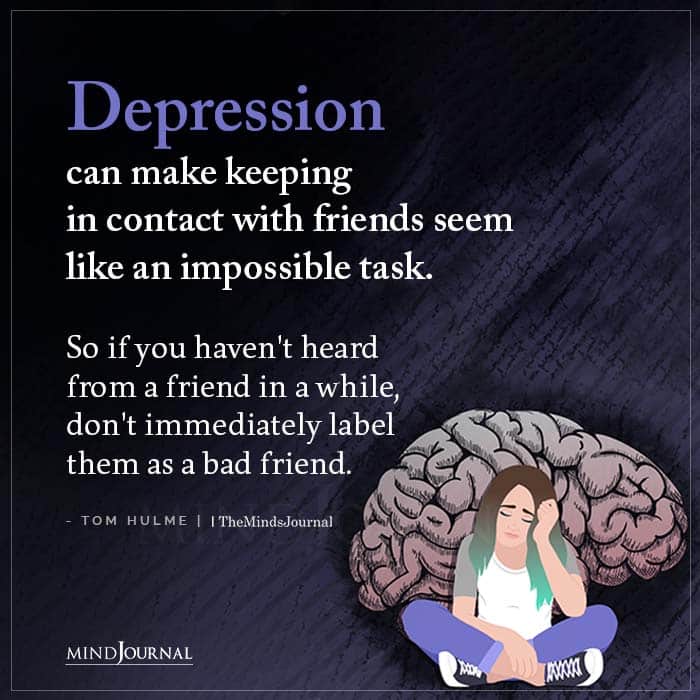
5. Unrealistic expectations
Certain social beliefs and practices can also prevent you from making new connections, such as believing that you need to be extroverted, popular and have many friends in order to seem happy and successful. However, this can often put unnecessary pressure on us to socialize forcibly and leads to high expectations from us and from our so-called “friends.”
But being pressured to make acquaintances with individuals who don’t really care about you won’t help your loneliness. Although these can help you be more social, forced casual friendships can often feel annoying, draining and empty. Studies show that interpersonal chemistry is crucial for friendship formation. But it is often missing in forced peer relationships.
Related: The 7 Types Of Toxic Friends You Should Stay Away From
6. Lack of social interests
Friendships often occur naturally with people we share common interests, passions and hobbies with. When we meet someone who is as passionate about a particular topic, then it automatically leads to a connection. This is why we are mostly friends with like-minded individuals.
But when you don’t have any specific interests or passions you can have difficulty making social connections. Although some of us may not have any particular interests, we can always learn new skills and explore new activities to meet new people.
However, if you are too set in your ways and refuse to leave your comfort zone, then making new friends and meaningful connections will only remain a distant dream. So if you want to stop saying “I have no friends”, then pursue some new hobbies and passions.
7. Lack of time
You are too focused on your goals and objectives and determined to achieve them which makes you seem caught up with your studies or work all the time. And as a result, you have no time to meet with your friends or socialize with others. Unfortunately, sometimes we use our “busyness” to suppress and hide our true emotions and overcome loneliness.
Using the excuse of not having enough time almost seems flawless as it enables you to avoid your reality of not having no friends. But it can make your emotions more negative and make you filled with stress. Make sure to socialize once a week with your peers, coworkers, old mates or even your loved ones as true friendships can often last a lifetime.
8. Lack of money
Less money equals less opportunities, less supportive people, more struggles and more loneliness. Financial strain can seriously affect your ability or interest to socialize and meet new people. It can make you feel less confident, resentful and annoyed with others when you are struggling, while others are seemingly well off.
Moreover, the financial stress you are experiencing can also affect your existing friendships as you may prefer to isolate yourself to cope with your problems. Although money is essential for our survival, true friendships and relationships are not reliant on money and can in fact get stronger when going through hurdles.
Studies show that “Focusing on money is associated with spending less time maintaining relationships.” The researchers found that when our self-worth is tied to our financial success, we experience higher levels of social disconnection and loneliness as we spend less time with family & friends. So financial struggle may be one of the reasons why you think “I have no friends.”
Related: Where to Get Money for Unexpected Expenses?
9. Difficulty opening up or trusting others
If you have a difficult time opening up to others or trusting your loved ones, then it can be difficult to build genuine connections, let alone new friendships. When we lack trust, we keep ourselves from getting close to others and letting them into our lives.
But when you can learn to become vulnerable and share your innermost thoughts with someone by building trust, then it can lead to the closest friendships. It is only by knowing more about each other you will be able to trust your friend and form close relationships. However, if you have excessive trust issues, then seeking therapy can help.
10. Lack of belongingness
Do you feel that you are unique and don’t necessarily fit in anywhere? If yes, then it is likely that you think “I have no friends”. Close and real friendships provide us meaning and offer a sense of belonging, which helps to manage our negative emotions, stress and helps us feel safe and protected.
But when we feel that we don’t belong or don’t fit in, we tend to withdraw and isolate ourselves from others. Research reveals that “human beings have a pervasive drive to form and maintain at least a minimum quantity of lasting, positive, and significant interpersonal relationships.”
The truth is you are not alone, there are others who think and feel just like you do. All you need to do is boost your confidence, improve your social skills and look for like-minded people, whether online or in the real world.
11. Other factors
Here are some other reasons why you don’t share any real connection with anyone and keep saying “I have no friends”-
- You have different interests than your peers and coworkers
- You tend to travel or move a lot which makes it hard to make or maintain friendships
- Due to your work or lifestyles, you lack opportunities to meet new people
- You seem desperate and needy to others as you are trying too hard to make a new friend
- You have not maintained any contact or connection with old friends
- You think others hate you or at least no one likes you
- You are not a very sociable person and don’t have adequate social experience
- You tend to be quiet and fail to attract attention in groups
- You believe you don’t have what it takes to make friends
- Being a loner, you have always lived online and you have never had any friends
- You are too pessimistic, negative or toxic which is why others avoid you
- You prefer to socialize only with your romantic partner or spouse
- You generally feel resentment and bitterness towards people
- You have anger issues and often react in ways that make others feel uncomfortable
- You have moved to a new city away from your hometown & lost your old social circle
- You live in a remote rural area with few new people to meet
- You change your job frequently and hence, you don’t have any work friends
- You have serious insecurities and are afraid of abandonment or rejection
- You think making new friends will take too much hard work and you’re not sure if it will be worth it
Related: Why Your Friends Are More Important Than You Think
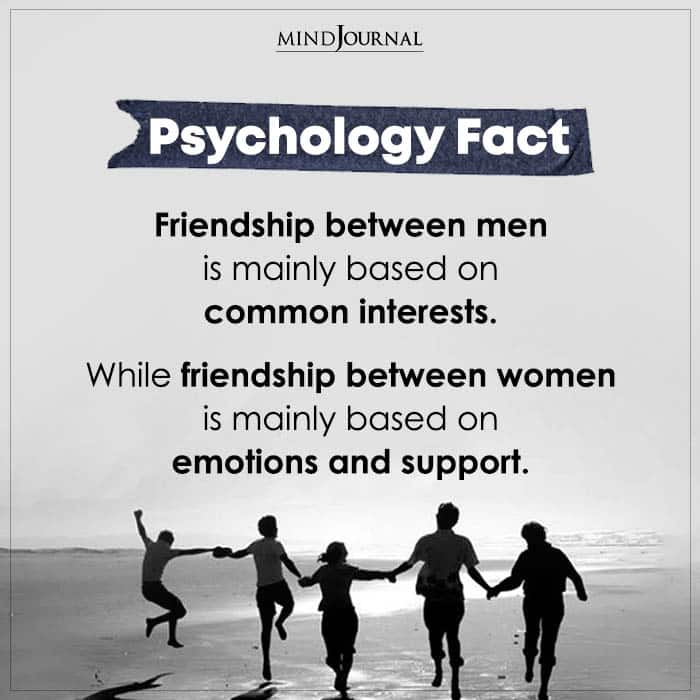
How To Make New Friends
What to do when you have no friends? Life changes constantly and despite our best efforts, we often find ourselves alone and lonely. Regardless of the reason, if you find yourself friendless and are willing to meet new people to build new connections, then here are a few ways to things to do when you have no friends in your life –
1. Learn to cope with social anxiety
As social phobia is one of the challenges that keeps you from making new connections, you need to learn how to deal with such unpleasant, negative and strong feelings that hold you back. Unless you overcome your anxiety, you will not be able to be your genuine self and connect fully in social settings.
It is best to practice some deep breathing techniques for relaxation strategies or even consult a therapist. According to a 2017 study, “Cognitive behavioral therapy can be regarded as the psychotherapy with the highest level of evidence.”
2. Avoid negative self-talk
Stop saying things like “I have no friends,” and start ask yourself “How can I make new friends?”. Our insecurities and self-criticism often keep ourselves from meeting new people by filling our heads with thoughts like, “what if they don’t like me?” But you need to realize that a thought, is just that… a thought. It’s not the reality.
Although you may mistakenly believe that you can’t make friends, you possess all the natural skills and traits needed to form meaningful friendships. Studies show that your social anxiety makes you underestimate your social skills as you try to “avoid social and performance situations” that cause you considerable distress.
So by changing the way you talk to yourself instead of beating yourself up, change the script of your inner monologue. Tell yourself that you are compassionate, likeable, confident and have an appealing personality.
3. Be open, friendly and welcoming
Having an open body language, as opposed to a closed one, makes you seem friendlier and more approachable to others, especially in a social setting. Have a positive body language when meeting new people, shake hands firmly, make eye contact, smile, sit or stand up straight etc.
You should also try to have an open mind when conversing with others, yet be genuine and friendly. As everyone is different and may have different views, learning about them, validating them or even engaging in a healthy logical debate can also help you build new friendships. So make sure to listen to what stories others have to share and pay attention to them without making any judgments.
Related: Female Friendships Are The Key to Happiness Among Women: Studies Suggest
4. Improve your social skills
Show interest in people, give them compliments, smile at people you meet on the street, or make some small talk with your coworker at lunch. There are innumerable opportunities throughout the day to build a connection with someone and you need to be aware of such situations and make the most of them.
Although not everyone will want to be your friend, it will at least help you overcome your shyness and social anxiety. You should also boost your social skills by practicing how to initiate and hold conversations, including “small talk”. When talking to someone you barely know, you can talk about a wide range of generic topics like food, weather, pets, current affairs, vacations, hobbies, work or generally talk about families.
Try to ask them non-intrusive questions to encourage them to open up and talk more honestly with you, engaging in longer conversations. This is how you can get out of your “I have no friends” phase and build a circle of close friends.
5. Seek therapy
Talking to a therapist can be helpful if you are unable to overcome your shyness or social anxiety. Moreover, if you have any underlying mental or physical health conditions that keep you from being as sociable as you would want to be, then talking to a medical professional may be necessary.
According to a 2014 study, comprehensive and thorough “Cognitive behavioral therapy (CBT) is very effective in treating anxiety. It is a structured intervention that follows a general framework that is modified for each individual.” Therapy can help you find a sense of belongingness within yourself and in your loved ones.
Related: 4 Tips For Making Female Friendships As An Adult
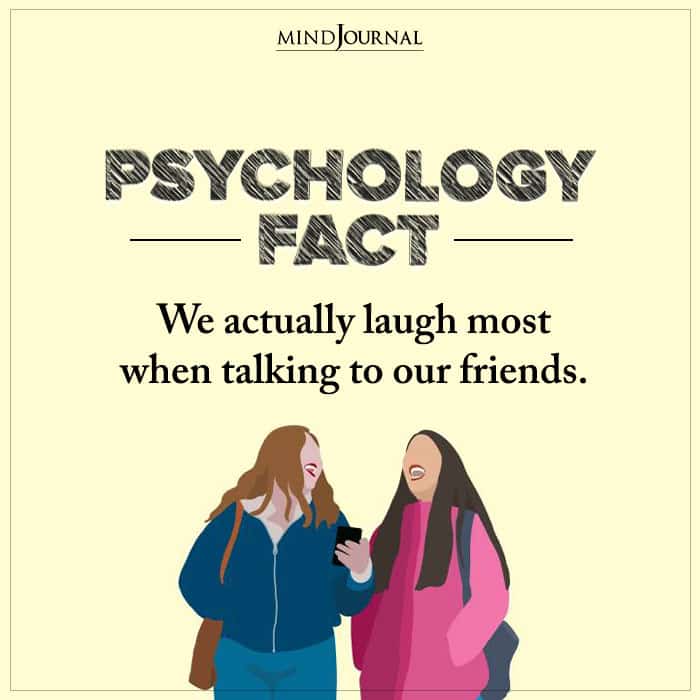
Strategies To Cultivate New Friendships
Here are a few helpful tips that will enable you to meet more potential new friends –
- Visit places where you can have enough opportunity to meet new people, like a club or a bar, do volunteering, take a new class or participate in meetups
- Accept invitations to socialize instead of rejecting them immediately
- Practice small talk and take advantage of it for initiating more meaningful conversations
- Be grateful, humble and welcoming towards others. Smile when you greet someone and show interest in them in a friendly way
- Don’t shy away from talking about yourself. Feel confident in opening up to people you are comfortable with
- Avoid judging or canceling people based on specific traits or within the short period of time you have known them. We all have different layers to our personality
- Be proactive and introduce yourself to people you find interesting instead of waiting for someone to approach you. Although it may trigger your anxiety, this is often how we make close friends
- Don’t allow your fear of interacting with strangers or rejection stop you from being more friendly with others
- Look for like-minded people who share similar interests or have similar personalities
- Invest in your existing acquaintances and see if it can be turned into a more meaningful friendship
- Make sure not to approach someone too strongly and avoid appearing desperate, needy or even creepy
- Don’t compare yourself to others. Do not compromise yourself either just for the sake of having new friends. Respect yourself and let your peers respect you too.
- Create a profile on friendship apps and see if you can meet anyone interesting. But don’t let this be your only option for meeting new people.
- Get a furry friend instead if you still feel anxious around other human beings. Having a pet can not only provide you great company, but can also help you meet new people as well.
Related: What To Do When Your Two Friends Don’t Get Along
Do You Even Need Friends?
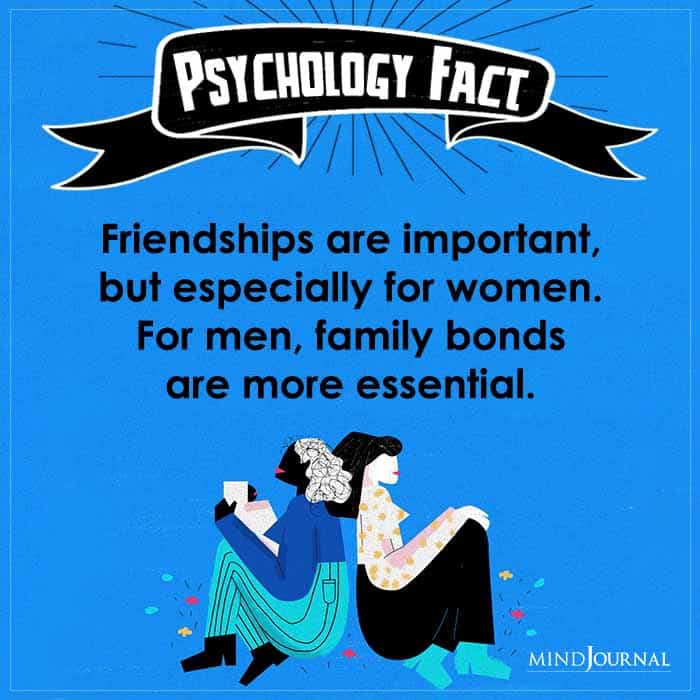
Before you say “I have no friends”, pause and wonder why you even need friends. Friendships are a crucial aspect of our lives but it can often be challenging to make new friendships as an adult. Research indicates that 1 in 5 people do not have any real or close friends. In fact, studies have found that it can be increasingly difficult to make new friends after the age of 25.
As we grow older, become mature and self-aware and as life wears us down each day, we become more cautious about who we let into our lives. This not only affects our ability to connect with others but also leads to smaller social circles, feelings of isolation & loneliness and lower self-esteem & self-confidence.
According to a 2018 study, friendships are associated with companionship, cooperation, conflict resolution and social skills. Close friends tend to meet our social needs such as intimacy, support and validation. “Even having just one friend attenuates the emotional and physiological consequences of negative social experiences,” adds the study.
However, the researchers also observed that friendlessness is related to low self-esteem, loneliness, depression and other internalizing difficulties. Friendless individuals “are more likely to perceive themselves as victimized by peers,” develop negative beliefs about others, lack trust, feel unsafe in social situations and anticipate hostile behaviors from peers.
This can stimulate a negative feedback loop leading to behavioral withdrawal and isolation. When our social needs, typically met by friendships, are left unfulfilled, it can result in perceived social threat and a strong sense of insecurity.
Related: Why You Don’t Need Friends To Be Happy
Studies further reveal that people who are friendless are approximately twice as likely to experience psychological difficulties, internalizing symptoms and mental health issues than people with at least one friend. Evidence also indicates that satisfaction with a best friendship can affect the personal, affective, and social well-being of senior adults.
One 2018 study has revealed that “friendship, in terms of intensity (measured by the frequency with which individuals see their friends) and quality (measured by the satisfaction with friendship relationships), is positively associated with life satisfaction.”
To Make Friends, Be A Friend First
Making new friendships is one thing, the more important thing is to maintain those friendships. Our friends require our love, care, time, trust and attention as do we. This is how the connection becomes stronger and thrives.
Although you may be having difficulties in making new friendships at this moment, the truth is, it is a natural skill that you need to be aware of and improve within yourself. All you need to do is show interest, pay attention to others and be your genuine self.
It will take some patience, efforts and determination to develop the connections of companionship. But until then, you have a friend in me. So feel free to share your story, thoughts, ideas or opinions below, and I promise I will be here for you like a true friend.
Now go out there and show them what you are made of, my friend.
Related: 13 Signs You Have Emotionally Intelligent Friendships
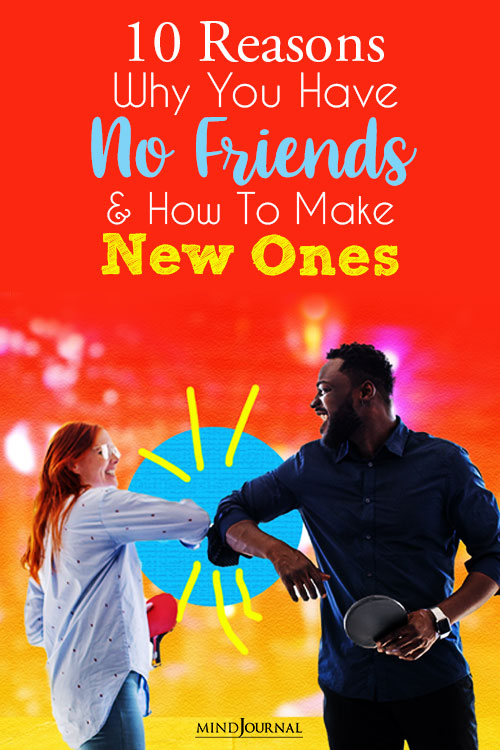
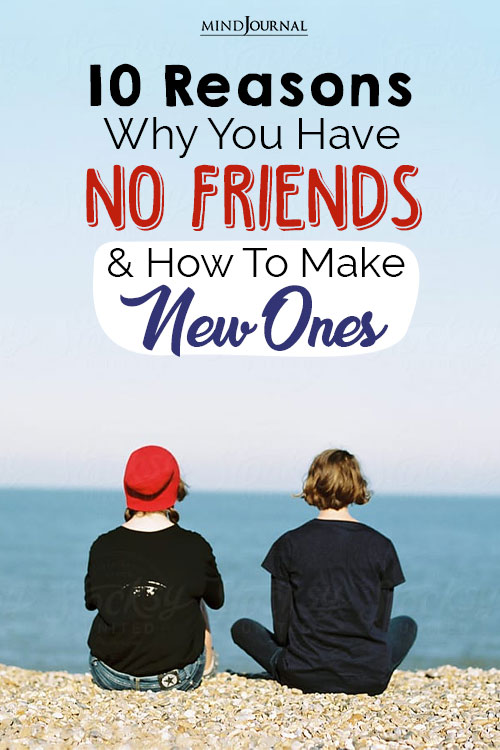


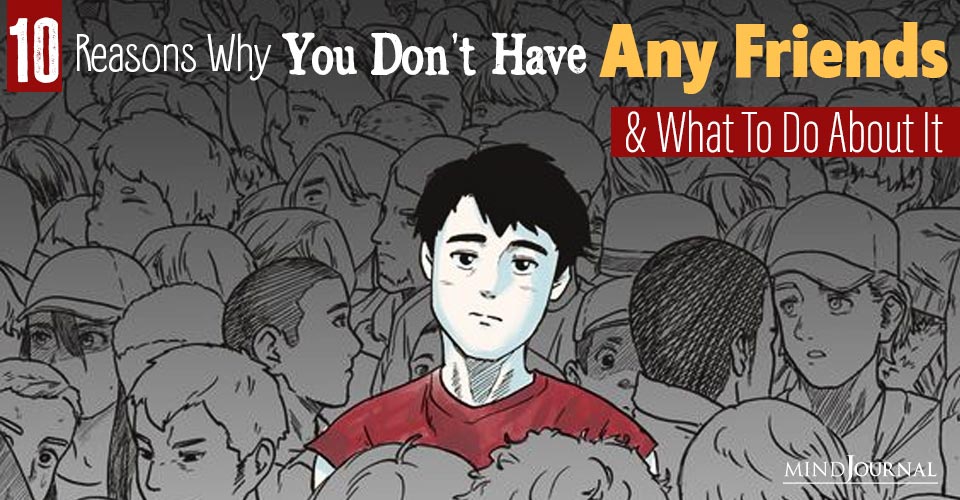







Leave a Reply